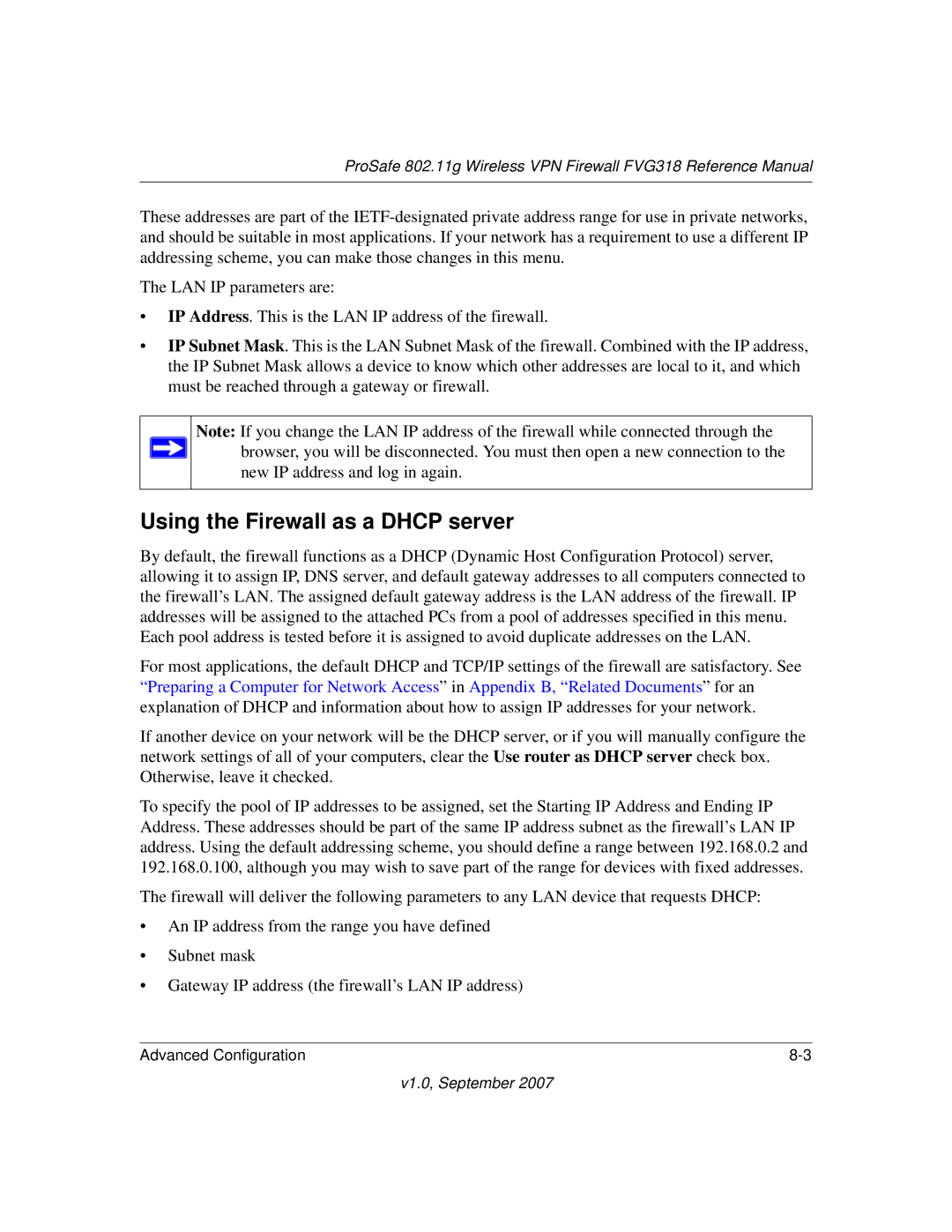
ProSafe 802.11g Wireless VPN Firewall FVG318 Reference Manual
These addresses are part of the
The LAN IP parameters are:
•IP Address. This is the LAN IP address of the firewall.
•IP Subnet Mask. This is the LAN Subnet Mask of the firewall. Combined with the IP address, the IP Subnet Mask allows a device to know which other addresses are local to it, and which must be reached through a gateway or firewall.
Note: If you change the LAN IP address of the firewall while connected through the ![]() browser, you will be disconnected. You must then open a new connection to the
browser, you will be disconnected. You must then open a new connection to the
new IP address and log in again.
Using the Firewall as a DHCP server
By default, the firewall functions as a DHCP (Dynamic Host Configuration Protocol) server, allowing it to assign IP, DNS server, and default gateway addresses to all computers connected to the firewall’s LAN. The assigned default gateway address is the LAN address of the firewall. IP addresses will be assigned to the attached PCs from a pool of addresses specified in this menu. Each pool address is tested before it is assigned to avoid duplicate addresses on the LAN.
For most applications, the default DHCP and TCP/IP settings of the firewall are satisfactory. See “Preparing a Computer for Network Access” in Appendix B, “Related Documents” for an explanation of DHCP and information about how to assign IP addresses for your network.
If another device on your network will be the DHCP server, or if you will manually configure the network settings of all of your computers, clear the Use router as DHCP server check box. Otherwise, leave it checked.
To specify the pool of IP addresses to be assigned, set the Starting IP Address and Ending IP Address. These addresses should be part of the same IP address subnet as the firewall’s LAN IP address. Using the default addressing scheme, you should define a range between 192.168.0.2 and 192.168.0.100, although you may wish to save part of the range for devices with fixed addresses.
The firewall will deliver the following parameters to any LAN device that requests DHCP:
•An IP address from the range you have defined
•Subnet mask
•Gateway IP address (the firewall’s LAN IP address)
Advanced Configuration |
